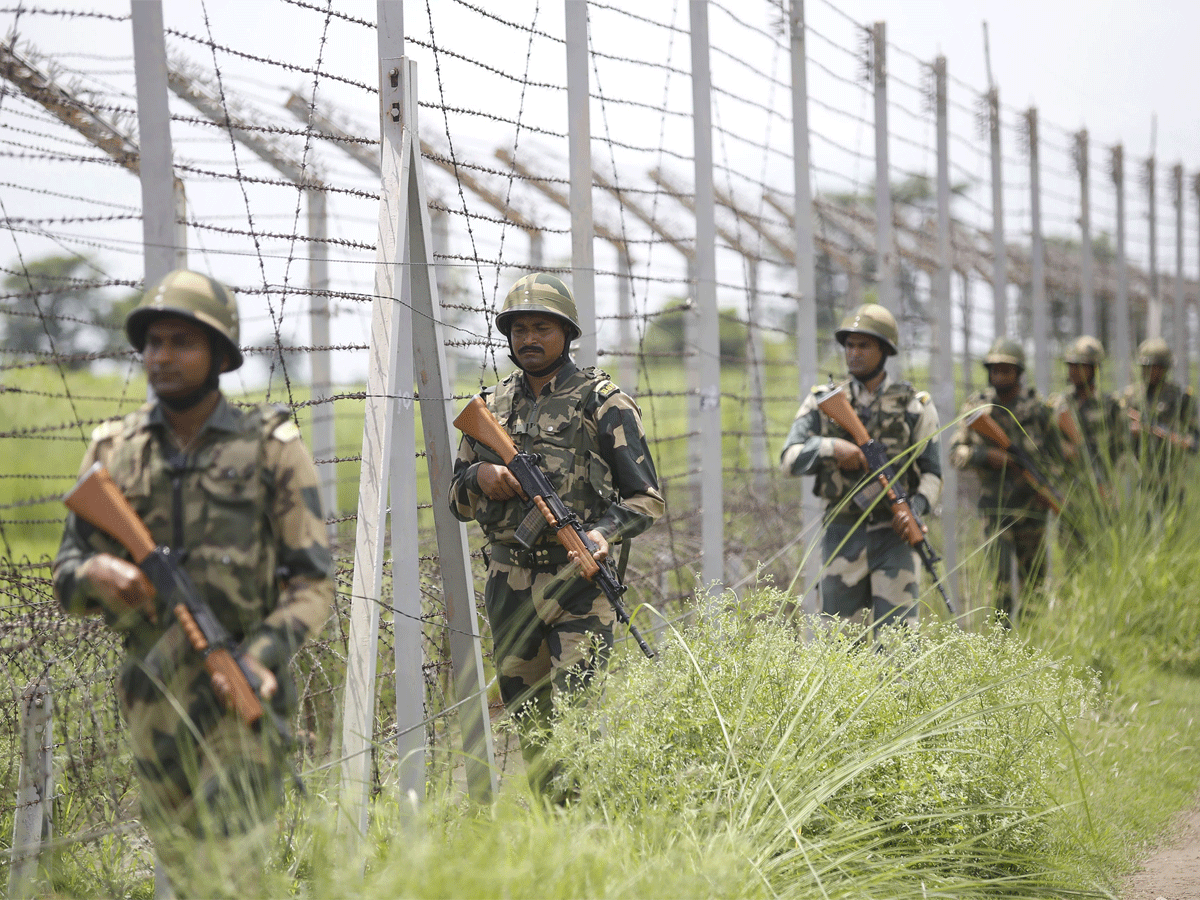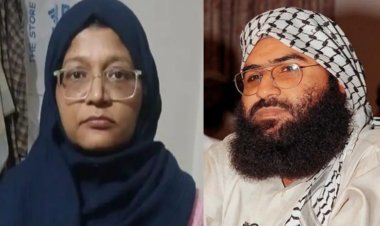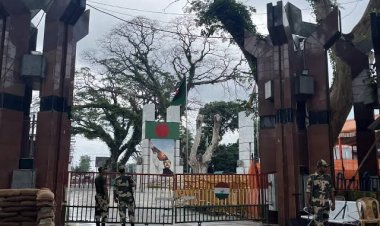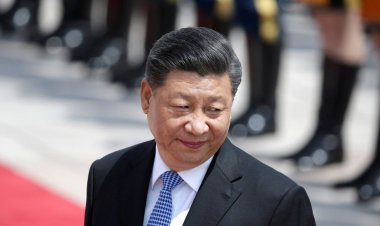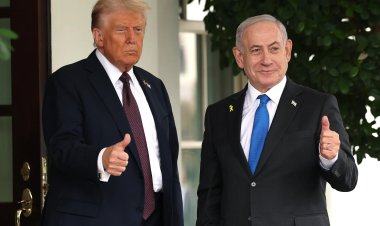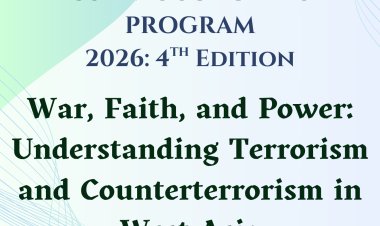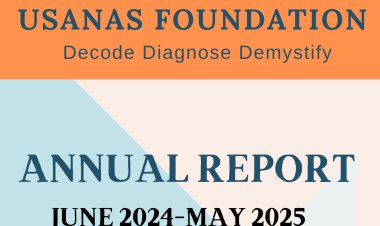Usanas Foundation's Petition to International Organizations Against the Violation of Freedom of Religious e-Xpression by the State of Pakistan
On January 11th, 2021, Usanas Foundation sent a letter to international organisations such as United Nations, UN Human Rights Commission, Human Rights Watch, Freedom House, the European Union, International Society for Human Rights etc , regarding the violation of freedom of religious e-Xpression by the state of Pakistan

January 11, 2020
Re: Violation of Freedom of Religious e-Xpression by the State of Pakistan
Honourable Sir/ Madam,
This is Usanas Foundations letter series on the constantly increasing Human Rights violations by the State of Pakistan on the religious minorities. Usanas Foundation is a Udaipur based geopolitical and security affairs think tank. We dabble in a range of activities, producing unbiased and cross-disciplinary analysis of global events. In our previous letters, we have focused on the Human Rights violations and targeted killings of Ahmaddiya Community, Shia Community, and Baloch and Pashtun region. In this letter, we will be focusing on the violation of freedom of religious expression by the state of Pakistan.
On January 9, 2021, the anti-terrorism court (ATC) of Islamabad for the first time sentenced three men to death for committing blasphemy in the cyberworld. Rana Nouman Rafaqat and Abdul Waheed were sentenced to death for operating fake profiles and disseminated blasphemous material on social media, while Nasir Ahmad uploaded blasphemous videos on YouTube channel.
There were 76.33 million internet users in Pakistan in 2020 and 37 million of them used social media in 2020. The numbers increase each year. Pakistan uses various state sources to control and limit the usage of social media. , the internet is a cyberspace, a space for interaction, individuation, socialization, and furthermore, for representation, and for resistance. Cyberspace probably is the profound place to give the impression of the exercise of the “freedom of expression.” 2016 Prevention of Electronic Crimes Act (PECA) is constantly amended to include new rules. In 2020 new rules, titled “Removal and Blocking of Unlawful Online Content (Procedure, Oversight and Safeguards) Rules 2020” were framed under the 2016 PECA. Under the new regulations, social media companies or internet service providers face a fine of up to $3.14 million for failure to curb sharing of content deemed to be defamatory of Islam, promoting of terrorism, hate speech or any content viewed as endangering national security. The rules also put Pakistani users’ privacy at risk, by allowing the PTA to seek access to people’s online conversations and metadata with no judicial oversight. Any content critical of Islam could be considered violating the “glory of Islam” and termed blasphemous, and those sharing it on social media face the risk of being accused of blasphemy.
The prohibitions on blasphemy may give an impression of being justified because they are seemingly meant for the protection of the “glory of Islam”, “public order”, and “decency or morality” as enshrined in article 19, and “subject to law, public order and morality” under article 20 of the Pakistan Constitution. But these provisions must not be construed as reasonable restrictions imposed by law on freedom of expression and religion because of their immensely broad nature and disproportional effects on fundamental rights. These constitutional provisions show that freedom of expression and religion are not absolute. However, they are also not completely unavailable to Pakistani citizens.
Pakistani Courts never saw blasphemy as an objectionable speech offence, but rather as an insult to God. They considered this area of law as out of their reach, such that a mere allegation of blasphemy superseded all principles of customary criminal law, such as innocence of the alleged, the benefit of the doubt and mens rea etc.
Apart from challenging blasphemy law as being un-Islamic or full of textual lacunas, they could very well be challenged on the basis of international human rights law. Despite the fact that Pakistan is a signatory to many international human rights instruments, like the Charter of the United Nations (1945), International Covenant on Civil and Political Rights (1966), and International Convention on the Elimination of all Forms of Racial Discrimination (1969), it has miserably failed to perform its international obligations in this regard. More so since these important international covenants require the member states to eliminate all forms of discrimination so as to promote equality, liberty and freedom. Unfortunately, governments in Pakistan have successively failed to achieve these goals.
The current blasphemy laws create radicalism and discrimination in society, thus making minorities petrified for their fate in the hands of the majority. Pakistan is a multireligious community with a difference in ideals between Islam and other religions. Therefore, a provision which is already so broad in nature cannot be expected to equally protect two different opinions. For example, Muslims believe that there is no god but God Almighty having no successor or offspring, and Prophet is the last messenger of the God whereas Shias believe differently. Now, to put these two contradictory concepts in a provision would be logically incorrect, so a consensus over the precise definition of blasphemy is very difficult to achieve, making Shias directly in violation of the blasphemy law.
Pakistan is a common law country and its penal code is largely the same as was designed by the British in 1860, except the blasphemy laws. The common law principles require that a penal provision must clearly describe the act or omission which is prohibited and liable to be prosecuted by the state. Therefore, legislation which is too broad in scope is considered flawed, if it enhances the risk of arbitrary action or enforcement, creating room for its misuse. The laws related to blasphemy in Pakistan are one such example because they are also too broad in scope.
Blasphemy laws are not based on Islamic injunctions or teachings, which they claim to protect. And the text used in this provision is so vague in meaning that it could be dragged in any direction through an interpretation which extends the possibility of malicious prosecution of innocent citizens. People are not aware of the blasphemy laws in detail.
- Uttering of any word or making any sound or making any gesture or placing of any object in the sight with the deliberate intention of wounding the religious feelings of any person is one-year imprisonment.
- Defiling Quran is a life sentence, and
- Use of derogatory remarks, spoken, written, directly or indirectly, etc. defiles the name of Muhammad or other Prophet(s) is a death sentence.
The problem here is that people are not aware of the distinction, and neither are the judges. S. 295-C PPC has no proviso referring to the defence of private conversations, and thus anyone could accuse another of committing blasphemy without even having fair evidence to prove this allegation. In this regard, the likelihood of the blasphemy law being misused to victimize an opponent is clear, as already explained. Thus, it is quite possible that a person can be falsely accused of blasphemy committed in private communications. Similarly, he might be killed extra-judicially by a religious fanatic or a self-assumed ‘soldier of Islam’ for whom it is sufficient evidence of guilt if a person is merely accused of blasphemy.
These provisions have no justification under the common law because of their vagueness and ambiguity. They do not give clear guidance as to what expression may be considered blasphemous and are conducive to creating a more radical society in Pakistan and violate the religious freedom of the minorities. The extension of such radical and violative provision into social media furthers the state’s grip on people's freedom of speech and religion.
We request the international community to:
- To clearly condemn the violation of human rights and fundamental liberties in Pakistan.
- To urge the State of Pakistan to abolish Ordinance XX and the Blasphemy law.
- To urge the State of Pakistan to fulfil their international obligations.
- To take, as a matter of the greatest urgency, all the measures necessary to immediately stop the killing of religious minorities in Pakistan.
Yours Sincerely,
Usanas Foundation


